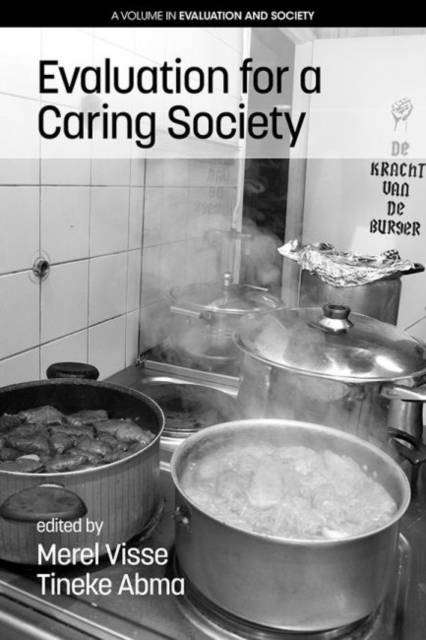
- Retrait gratuit dans votre magasin Club
- 7.000.000 titres dans notre catalogue
- Payer en toute sécurité
- Toujours un magasin près de chez vous
- Retrait gratuit dans votre magasin Club
- 7.000.000 titres dans notre catalogue
- Payer en toute sécurité
- Toujours un magasin près de chez vous
Evaluation for a Caring Society (hc)
Description
This book highlights views on responsive, participatory and democratic approaches to evaluation from an ethos of care. It critically scrutinizes and discusses the invisibility of care in our contemporary Western societies and evaluation practices that aim to measure practices by external standards. Alternatively, the book proposes several foci for evaluators who work from a care perspective or wish to encourage a caring society. This is a society that sees evaluation and care as a continuously unfolding relational practice of moral-political learning contributing to life-sustaining webs.
'At one level is the evaluator's immediately responsive and interpersonal encounter with the personal troubles of social actors, most visible, as Mills originally pointed out, in an individual's biography and in those social settings directly open to the individual's lived experience. (...) At another level, the sociological and political level, the evaluator operates at what Mills called the arena of public issues where immediate personal troubles are seen not only as problems encountered by individuals but as the result of structural and political arrangements in society (...) evaluation for a caring society is thought to operate at both levels' (Thomas A. Schwandt, Professor Emeritus, University of Illinois at Urbana-Champaign).
'The intricate relationship between evaluation and care is hardly addressed by evaluators or caregivers. This book fills a gap, as it focuses on the relationship between evaluation and care and provides a multitude of examples of evaluation as a caring practice (...) the book can serve as an antidote to the present-day haste in social practices, and contribute, in form and content, to developing an evaluation practice which may foster a caring society' (Guy Widdershoven, Professor of Philosophy and Ethics of Medicine and head of the Department of Medical Humanities at VU University Medical Center, VU University Amsterdam).
Spécifications
Parties prenantes
- Editeur:
Contenu
- Nombre de pages :
- 264
- Langue:
- Anglais
- Collection :
Caractéristiques
- EAN:
- 9781641131643
- Date de parution :
- 12-02-18
- Format:
- Livre relié
- Format numérique:
- Genaaid
- Dimensions :
- 156 mm x 234 mm
- Poids :
- 544 g






